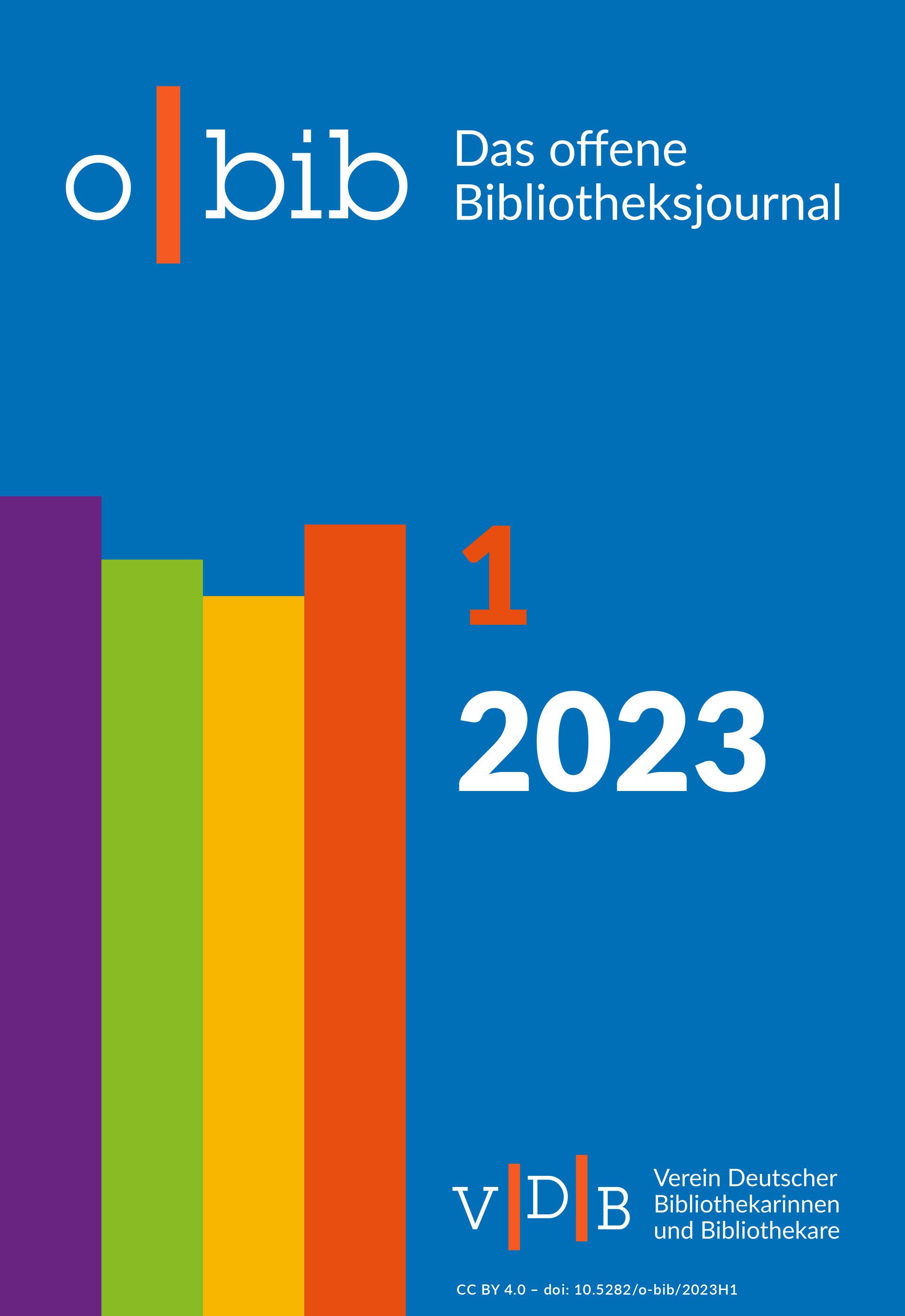Generation Z – eine qualitative Befragung zur Nutzung von Hochschulbibliotheken und Informationszentren
DOI:
https://doi.org/10.5282/o-bib/5906Keywords:
Information literacy, Learning environment, Generation Z, Academic library, University library, Qualitative user survey, COVID-19, Pandemic, Information gatheringAbstract
The ongoing digital transformation of our society is continuously leading to significant changes in the way that academic libraries and information centers offer their services. The Generation Z, also known as the current student and young doctoral generation, is one of the most important user groups of these facilities. However, our knowledge about their working methods, communication channels and expectations is still limited. Therefore, this study conducted personal interviews with members of Generation Z (up to 25 years) in order to develop user-oriented service concepts, systems, and information. The approach was exploratory and participants were interviewed in semi-structured guideline interviews, resulting in 58 online interviews that provide insightful insights into usage behavior. The results were collected during the coronavirus pandemic of 2020 and include many requests and suggestions for improvement, as well as difficulties faced by young adults.
References
Asher, Andrew D.: Space Use in the Commons. Evaluating a Flexible Library Environment, in: Evidence Based Library and Information Practice 12 (2), 2017, S. 68–89. Online: https://doi.org/10.18438/B8M659.
Francis, Tracy; Hoefel, Fernanda: ‘True Gen’. Generation Z and its implications for companies, 2018, https://www.mckinsey.com/industries/consumer-packaged-goods/ourinsights/true-gen-generation-z-and-its-implications-for-companies#, Stand: 20.12.2022.
Köppen, Veit: Nutzeranforderungen an Computerarbeitsplätze in Bibliotheken, in: Bibliotheksdienst 53 (3–4), 2019, S. 169–180. Online: https://doi.org/10.1515/bd-2019-0026.
Leven, Ingo; Hurrelmann, Klaus; Quenzel, Gudrun: Beruf und Karriere. Im Falle des Falles zählt die Sicherheit des Arbeitsplatzes, in: Albert, Mathias; Hurrelmann, Klaus; Quenzel, Gudrun (Hg.): Jugend 2019. Eine Generation meldet sich zu Wort, Weinheim, Basel 2019 (Shell-Jugendstudie), S. 187–211.
Mayring, Philipp: Qualitative Inhaltsanalyse. Grundlagen und Techniken, Basel, Weinheim 2010.
Scholz, Christian; Grotefend, Lisa-Dorothee (Hg.): Generation Z im Vier-Länder-Vergleich. Ein empirischer Vergleich von Deutschland, den Niederlanden, Österreich und Schweiz, Augsburg, München 2019 (Strategie- und Informationsmanagement Band 36).
Schroth, Holly: Are You Ready for Gen Z in the Workplace?, in: California Management Review 61 (3), 2019, S. 5–18. Online: https://doi.org/10.1177/0008125619841006.
Seemiller, Corey; Grace, Meghan: Generation Z. Educating and Engaging the Next Generation of Students, in: About Campus 22 (3), 2017, S. 21–26. Online: https://doi.org/10.1002/abc.21293.
Siems, Renke: Nutzer erforschen Nutzer, in: Bibliotheksdienst 47 (11), 2013, S. 820–832. Online: https://doi.org/10.1515/bd-2013-0095.
Wolfert, S.; Leven, Ingo: Freizeitgestaltung und Internetnutzung. Wie Online und Offline ineinandergreifen, in: Albert, Mathias; Hurrelmann, Klaus; Quenzel, Gudrun (Hg.): Jugend 2019. Eine Generation meldet sich zu Wort, Weinheim, Basel 2019 (Shell-Jugendstudie), S. 213–246.
Downloads
Published
Issue
Section
License
Copyright (c) 2023 Britta Kressin, Christine Rimland

This work is licensed under a Creative Commons Attribution 4.0 International License.





